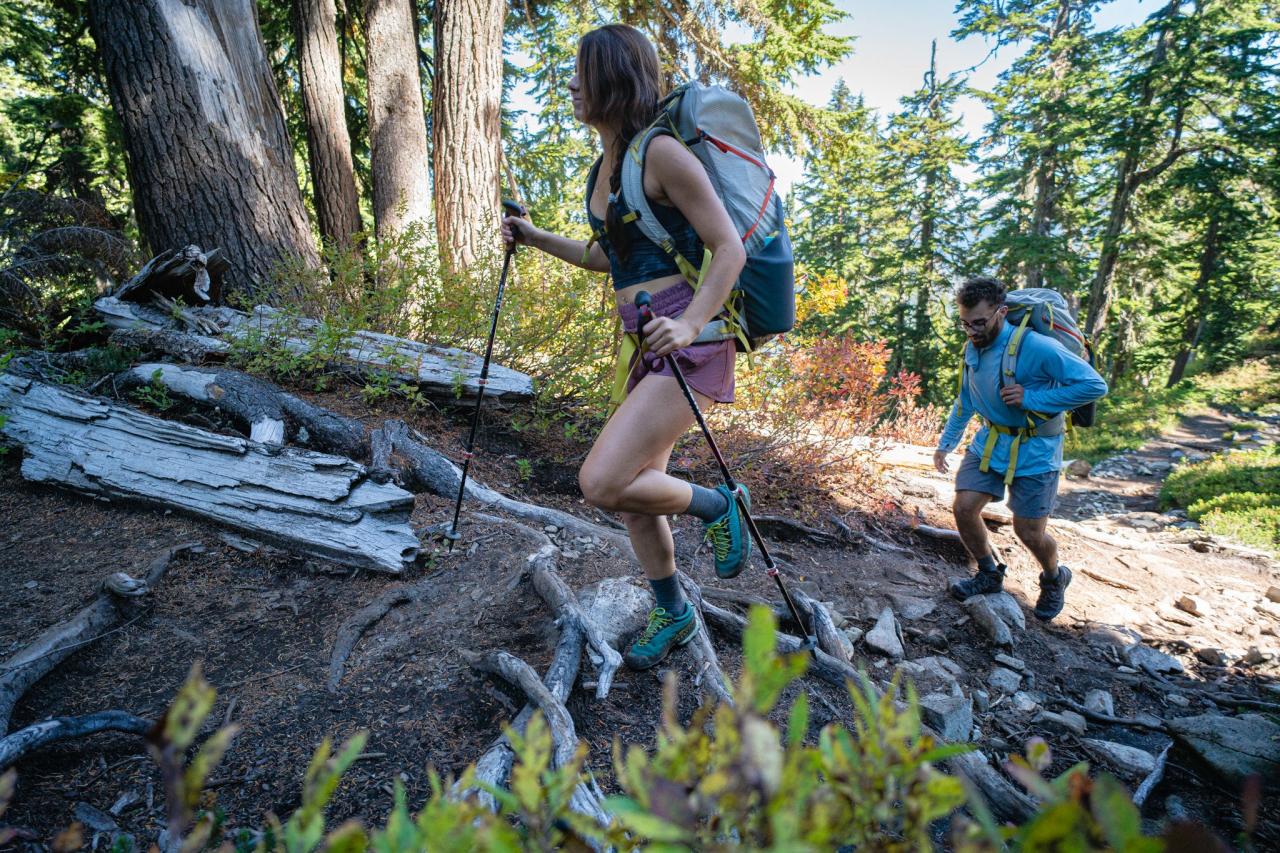Embarking on a journey through the great outdoors, adventurers are met with a vast and breathtaking landscape waiting to be discovered. As we immerse ourselves in nature’s untamed terrain, it is crucial to tread carefully and honor the delicate balance of the environment. Familiarizing oneself with trail etiquette not only guarantees a secure and pleasant hiking experience, but also safeguards the natural world for future generations to relish. Let us delve into the fundamental practices for navigating nature’s trails with poise and consideration.

Showing Reverence for Wildlife
While traversing through nature, it is imperative to maintain a safe distance from wildlife and refrain from disrupting their natural habitat. By remaining quiet and observing from a distance, we can demonstrate respect for the animals and aid in preserving their home.
Respecting the Trail: Tips for Hiking Etiquette
Hiking is a popular outdoor activity that allows us to connect with nature and explore new places. However, as with any activity, there are certain rules and etiquette that should be followed to ensure a positive experience for everyone. In this article, we will discuss some key tips for hiking etiquette to help you be a responsible and respectful hiker.
Be Mindful of Others
When hiking, it is important to remember that we are not the only ones on the trail. Other hikers, bikers, and even wildlife may also be sharing the same space. It is crucial to be aware of our surroundings and show courtesy to others. This means yielding to faster-moving individuals, being mindful of noise levels, and respecting the natural environment.
Leave No Trace
One of the most important principles of hiking is leaving no trace. This means that we should leave the trail and surrounding areas as we found them, or even better. This includes packing out all trash, staying on designated paths, and minimizing our impact on the environment. By practicing Leave No Trace principles, we can help protect our natural spaces for future generations to enjoy.
Respect Wildlife
When hiking, we are entering the home of many different species of wildlife. It is important to remember that we are guests in their environment and should treat them with respect. This means keeping a safe distance, not feeding or approaching them, and avoiding any actions that may disturb or harm them.
Be Prepared
Before heading out on a hike, it is essential to be prepared. This includes having the necessary gear, such as proper footwear and clothing, as well as enough food and water. It is also important to research the trail beforehand and be aware of any potential hazards or closures. By being prepared, we can ensure a safe and enjoyable experience for ourselves and others.
Hike Responsibly
Lastly, it is crucial to hike responsibly. This means following all rules and regulations, staying on designated paths, and respecting any closures or restrictions. It also means being mindful of our impact on the environment and taking steps to minimize it. By being responsible hikers, we can help preserve our natural spaces for future generations.
In Conclusion
Hiking is a wonderful way to connect with nature and stay active. By following these tips for hiking etiquette, we can ensure a positive experience for ourselves and others. Let’s remember to be mindful of our surroundings, leave no trace, respect wildlife, be prepared, and hike responsibly. Happy trails!
Exploring the great outdoors is a fantastic way to connect with nature and get some exercise. However, it is important to follow proper trail etiquette to ensure a safe and enjoyable experience for everyone. In this article, we will discuss some key tips for hiking responsibly and respectfully.
Preparation is Key
Before embarking on a hike, it is crucial to be well-prepared. This means bringing essential supplies such as water, food, a first aid kit, and a map. It is also important to inform someone about your plans, especially if you are hiking alone. This way, if anything were to happen, someone would know where to look for you.
Additionally, it is important to research the trail beforehand and be aware of any potential hazards or closures. This will help you plan your route and avoid any unexpected obstacles.
Respect the Environment
When hiking, it is essential to respect the environment and leave no trace behind. This means staying on designated trails and not venturing off into sensitive areas. It also means properly disposing of any trash and not disturbing any plants or wildlife.
It is also important to be mindful of noise levels and avoid playing loud music or shouting, as this can disrupt the natural habitat and disturb other hikers.
Consider Other Hikers
While on the trail, it is important to be considerate of other hikers. This means yielding to those going uphill, as they have the right of way. It also means keeping a safe distance from others and not crowding the trail.
Additionally, it is important to be aware of your surroundings and not block the trail while taking breaks or photos. This allows other hikers to pass by safely and without interruption.
In Retrospect
In conclusion, hiking is a wonderful way to enjoy nature and get some exercise. By following proper trail etiquette, we can ensure a safe and enjoyable experience for ourselves and others. So, remember to be prepared, respect the environment, and consider other hikers. Happy hiking!